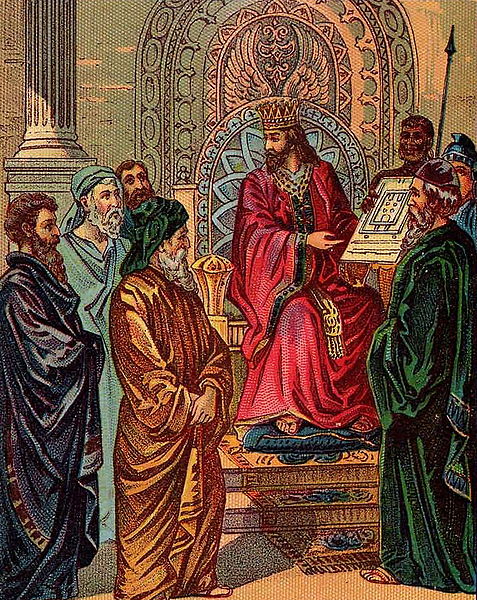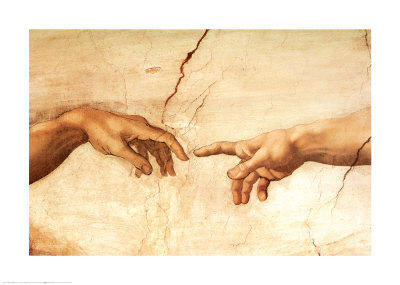 We are emotional creatures, there are no two ways about that.
God created us in his image, and the scriptures frequently refer to how God feels: rejoicing, angry, frustrated, and grieved.
We are emotional creatures, there are no two ways about that.
God created us in his image, and the scriptures frequently refer to how God feels: rejoicing, angry, frustrated, and grieved.
Look at Jesus: he wept, got angry, reacted with surprise, showed frustration, etc.
So as God created us with emotions, they are meant to be part of our lives. The goal of a healthy emotional state is not to become like Spock, with no emotional imput, only cold rational logic dictating our lives.
Think of your emotional state as a Rubik’s Cube.
When you are angry, or depressed, or lustful, or anxious, or any emotional state other than healthy, your emotional state is like a messed up Rubik’s Cube. No rhyme or reason, just total disarray.
Here’s the best way to not fix a Rubik’s Cube: ignore it. Toss it in the back of your sock drawer. It’s not going to get fixed that way, but at least you only have to see it every once in a while. It’s still a mess the whole time, but hey - fixing it would take time and effort. Who wants to spend that, am I right?!
There are underlying issues that are causing you to be depressed, or anxious, or lustful. You need to be willing to get alone, and spend some time exploring and examining your own thoughts and feelings. To pull out that Rubik’s Cube and start examining it, interacting with it, and adjusting it. It’s going to be frustrating. At times you may feel that it will never be put together in the way it’s meant to exist, but one thing is for certain: you will never solve the puzzle without putting your hands on it.
Are you depressed because of your situation in life? Are you angry at your lack of control? Do you have doubts about God or his goodness that you’re suppressing instead of dealing with?
Are you lusting uncontrollably because of a need for acceptance? Are there actions that you are taking that you need to cut off in order to get healthy?
Until you go in search of these underlying issues that are causing your emotions, they will stay hidden and continue to cause your emotional state to be completely out of whack.
If you’re not the kind of person that can be impartially introspective, a trained counselor can help guide you in that process. Or maybe you have a friend who is willing and able to tell you things that you have a blind spot to.
Regardless, the fear of what you might find once you go digging in your own soul must be overcome. We cannot be so afraid of looking in a mirror that we never do it. How can we begin to correct problems if we refuse to really and truly see them?
As a Christian, I strongly believe the scriptures provide an excellent source of objective input and that the Holy Spirit himself wants to help us in such inner journeys of discovery. As I said in a previous post, I found the scriptures to be much more beneficial when I stopped reading them to be ‘right’, and I started reading them to be changed.
Introspection, in my opinion, is the most valuable tool in spiritual and emotional development.
Now, once you have spent the time necessary to arrange your Rubik’s Cube of emotions, it’s tempting to sit back and look at how nice and neat and organized it is.
But what you need to realize is that it isn’t going to simply remain that way.
As you go through life, your carry your emotional Rubik’s Cube with you everywhere you go.
People will often try (and sometimes succeed) to grab it and mess it up. You get cut off in traffic. A friend betrays you. You find out that your pastor has been stealing funds from the church. Your boss/teacher chews you out. There’s a death of a close friend or family member.
Suddenly, your cube is out of alignment again. After all the work you put in getting it in order, it could be tempting to say ‘enough!’ and throw it back into the sock drawer.
This won’t help. This puzzle, this cube - it will be with us for the rest of our lives. But just as handing a real Rubik’s Cube will get easier with experience, so too will handing your emotional health. Once you find the place that your emotional balance point exists, it will be easier to get back to it.
There will be times that everything falls apart. But you will be able to pick up the pieces and put it all back together, as long as you don’t quit on yourself.
Don’t depend on other people to do this for you. If every time you turn into a mess you look for somebody to pull you back together, you’ll never be able to handle your emotions. I’m not saying that you can never go to a friend for support - I absolutely think that’s good. But you can’t expect them to “make it all better”. After you get some comfort or encouragement, go be alone. Work through your feelings and thoughts.
And when somebody comes to you in an emotional mess, love them, listen to them; then encourage them to work through it themselves. (Note: if this person says or in any way indicates that will hurt themselves or somebody else, get them professional help immediately. It could be a ploy to manipulate you into babying them, but you don’t screw around with a situation like that. Don’t enable them by coddling them, but do not just cut them loose.)
The best way to become emotionally crippled is by letting other people determine your emotional health. We are social creatures, and we must work to build community, and that will be difficult on us emotionally, but we must learn to handle these challenges by growing and maturing - and being able to deal with our own emotions is an essential part of that.
Get alone with yourself. Delve into the tempest. Stare into the abyss of your soul, and don’t be afraid as it stares back, because you’re not alone. Jesus heals the broken hearted and frees the captive. You just have to be willing to open the door.

























